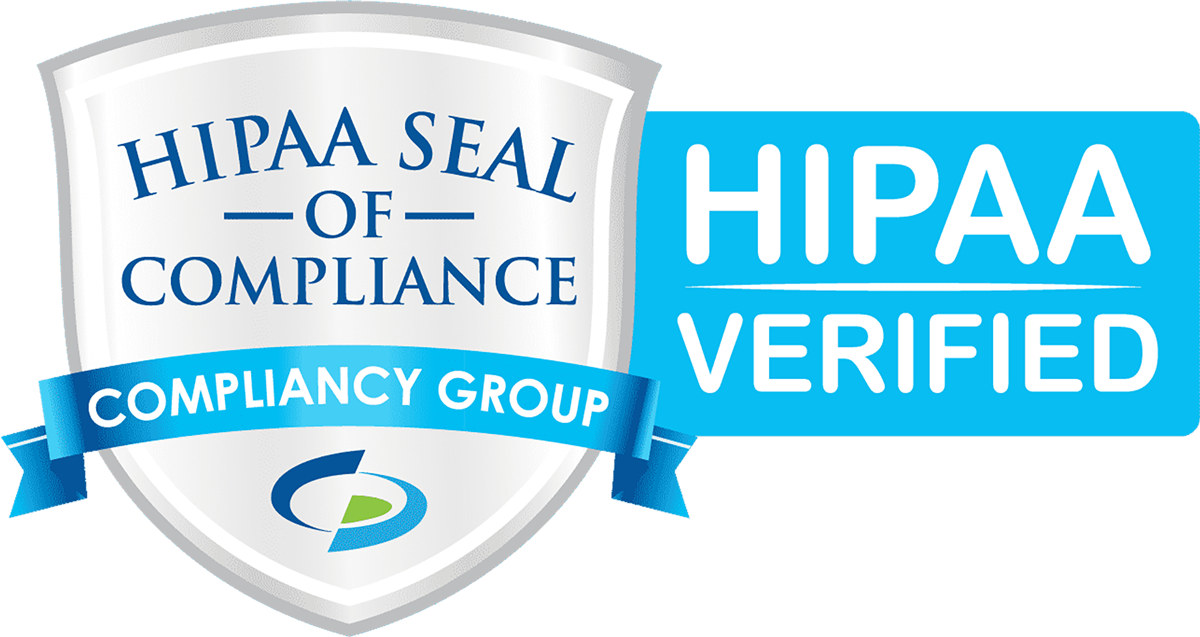Why Choose Bright Path Program
Comprehensive Mental Health Care
At the Bright Path Program, we recognize the importance of a holistic approach to mental health care, especially for individuals requiring Asperger’s syndrome treatment. Our program provides a multi-disciplinary team approach, which includes therapies such as social skills training, speech-language therapy, and cognitive behavioral therapy . Additionally, our applied behavior analysis interventions encourage positive behaviors while reducing negative ones.
Key Therapies
- Social Skills Training: Helps individuals develop critical interaction skills.
- Speech-Language Therapy: Improves communication abilities.
- Cognitive Behavioral Therapy (CBT): Manages emotions and behaviors.
- Applied Behavior Analysis (ABA): Promotes positive skills and discourages negative behavior.
Families are an essential part of the treatment process. We offer parent education and counseling to help them support their loved ones with Asperger’s. This comprehensive support system has been shown to be effective in managing a wide range of symptoms associated with Asperger’s and High-Functioning Autism (HFA).
Tailored Substance Abuse Treatment
The Bright Path Program also addresses the complex issue of substance abuse, offering individualized treatment plans tailored to meet the unique needs of each person. We understand that individuals dealing with dual diagnoses of Asperger’s syndrome and substance abuse require specialized approaches.
Key Treatments
- Psychotherapy: Custom-designed sessions to address both substance abuse and co-occurring mental health issues.
- Partial Hospitalization Program (PHP): Intensive therapeutic and medical care, while allowing the individual to return home each day.
- Intensive Out-Patient Program (IOP): Flexible treatment options that don’t require an overnight stay.
Our substance abuse treatment emphasizes not only overcoming addiction but also managing the emotional and cognitive aspects associated with Asperger’s syndrome. Approaches such as cognitive behavioral therapy (CBT) and dialectical behavior therapy (DBT) have been shown to be particularly effective (NCBI).
Table: Comparison of Substance Abuse Treatment Programs
| Program Type | Duration | Key Features |
|---|---|---|
| Partial Hospitalization Program (PHP) | 4-6 weeks | Intensive therapeutic care with day returns |
| Intensive Out-Patient Program (IOP) | Varies | Flexible schedules, focused therapy sessions |
| Drug Addiction Treatment | Customized | Addressing both addiction and mental health issues |
Choosing the Bright Path Program means access to evidence-based therapies, comprehensive mental health care, and specialized substance abuse treatments. Learn more about our day programming, transitional independent living, and other specialized services on our website.
Importance of Early Intervention
For individuals with Asperger Syndrome, early intervention is essential for optimal development and long-term outcomes. At Bright Path Program, we emphasize the importance of initiating treatment as soon as possible for those diagnosed with Autism Spectrum Disorder (ASD), including Asperger Syndrome.
Benefits of Early Diagnosis
Early diagnosis of ASD can significantly impact the trajectory of a child’s development. The sooner a child receives help after diagnosis or suspicion of ASD, the greater the chance for learning and progress (NICHD). Early intervention has shown more effectiveness in reducing autistic symptoms in children aged 36-47 months compared to children aged 48-60 months (NCBI).
| Age Group (Months) | Effectiveness in Reducing Autistic Symptoms |
|---|---|
| 36-47 | High |
| 48-60 | Moderate |
Results show that targeted interventions focusing on communication and prelinguistic skills can enhance developmental potential, especially in speech and language development.
Effectiveness of Preschool Interventions
Preschool interventions for children diagnosed with ASD are critical for leveraging the brain’s plasticity during early development stages. Studies indicate that younger children undergoing early intervention exhibit better improvements in symptoms such as repetitive behaviors, social interaction, and social communication compared to older children (NCBI).
Our comprehensive mental health care approach utilizes early diagnosis to inform the design of personalized treatment plans. Bright Path Program offers various therapy options, including cognitive behavioral therapy and art and music therapies, tailored to meet the individual needs of each child (NCBI).
By focusing on early and targeted interventions, the Bright Path Program ensures children receive the support they need to reach their full developmental potential. For more information on our holistic approach to mental health and substance abuse treatment, including options like the partial hospitalization program and the intensive out-patient program, explore our comprehensive resources.
Treatment Approaches for ASD
Our Bright Path Program offers a variety of treatment options tailored to individuals with Asperger Syndrome and other Autism Spectrum Disorders (ASD). This ensures comprehensive support in improving social, communication, and behavioral skills. Below, we explore some key approaches.
Behavioral Therapies
Behavioral therapies, particularly Applied Behavior Analysis (ABA), are foundational in treating ASD. These therapies help children enhance their social and communication skills while encouraging positive behaviors and discouraging negative behaviors (Healthline). ABA is versatile, with different types tailored to various ages and targeted skills.
Cognitive Behavioral Therapy (CBT) also plays a crucial role. It’s effective in addressing a wide range of issues, including anxiety and social deficits, in individuals with Asperger’s and High-Functioning Autism (HFA). Clinical studies have shown promising results in using CBT for autism-related disorders (NCBI). For more details, read about our cognitive behavioral therapy.
Speech and Language Therapy
Speech and language therapy is essential in helping individuals with ASD improve their communication skills. Therapists work on both verbal and non-verbal communication. Techniques may include:
- Picture Exchange Communication System (PECS): Uses pictures to develop communication skills.
- Social Stories: Customized short stories that depict social situations to teach appropriate behavior.
This therapy is especially important for enhancing the individual’s ability to express themselves and understand others, fostering better social interactions.
Art and Music Therapies
Art and music therapies provide creative outlets and can be particularly beneficial for those on the autism spectrum. These therapies use the therapeutic potential of art and music to improve emotional regulation, social skills, and communication.
- Art Therapy: Encourages self-expression through drawing, painting, and other art forms. It helps in developing fine motor skills and can serve as a medium to explore emotions.
- Music Therapy: Involves activities like playing instruments, singing, and listening to music. This can enhance sensory processing, improve social interaction, and reduce anxiety.
Incorporating these therapies into our program allows for a holistic approach to treatment, addressing not only behavioral and communication issues but also emotional and social well-being.
By offering a comprehensive range of therapies, our Bright Path Program is designed to meet the diverse needs of individuals with Asperger Syndrome. For more information on how we support mental health and substance abuse treatment, explore our various programs including day programming and partial hospitalization program.
Nutritional Considerations
It’s essential to address the nuances of nutrition when discussing aspergers syndrome treatment in our Bright Path Program. Here, we will evaluate the evidence for specialized diets and underscore the importance of balanced nutrition.
Limited Supporting Evidence for Specialized Diets
There is a popular belief that specialized diets, such as gluten-free or casein-free diets, can significantly impact the management of Autism Spectrum Disorders (ASD), including Asperger’s syndrome. However, extensive reviews and studies have revealed little evidence supporting these dietary interventions.
A 2017 review found minimal evidence to promote specialized diets or nutritional supplements in treating ASD. Similarly, another review in 2018 concluded that there is negligible evidence to support the efficacy of gluten-free or casein-free diets (Healthline).
Here’s a summary of findings:
| Review Year | Conclusion |
|---|---|
| 2017 | Little evidence supporting specialized diets or supplements for ASD |
| 2018 | Minimal evidence for the benefits of gluten-free or casein-free diets |
Given this data, we encourage individuals and families to consult healthcare providers when considering dietary changes as part of an ASD treatment plan to ensure informed and evidence-based decisions.
Importance of Balanced Nutrition
A balanced diet remains a cornerstone of overall health and well-being, including for those with Asperger’s syndrome. Ensuring that individuals receive adequate nutrients can improve their general health and potentially alleviate some symptoms associated with ASD.
Balanced nutrition involves:
- Ensuring a variety of fruits and vegetables
- Including whole grains, lean proteins, and healthy fats
- Limiting processed foods and sugars
The role of vitamins and minerals should not be overlooked as they support cognitive function and overall physiological processes. It is crucial to prioritize whole foods that naturally provide these nutrients over relying on supplements unless a deficiency is identified by a healthcare professional.
Promoting balanced nutrition can also:
- Enhance mood and energy levels
- Support better focus and cognitive function
- Reduce the risk of co-occurring health conditions
For those exploring nutritional interventions as part of Asperger’s syndrome treatment, we offer guidance on maintaining a well-rounded diet through our day programming and partial hospitalization program.
In summary, while specialized diets show limited supporting evidence, balanced nutrition should be a primary focus in managing Asperger’s syndrome. For additional insights on managing diet and co-occurring conditions, visit our resources on depression treatment and anxiety disorder treatment.
Strategies for Managing Asperger Syndrome
Effectively managing Asperger Syndrome requires a multi-faceted approach that encompasses interventions at home and school, a coordinated therapy team, and, in some cases, medication. Here are some key strategies to consider:
Home and School Intervention
Children or young people with Asperger Syndrome often excel in intelligence but struggle to interact appropriately with their surroundings. Management strategies for home and school environments focus on fostering a structured and supportive environment. This includes:
- Balance and Coordination: Activities to improve physical coordination.
- Fine Motor Skills: Exercises to enhance hand-eye coordination.
- Self-Care Skills: Teaching routine tasks to promote independence.
- Organization Skills: Implementing systems to help in planning and task management.
| Intervention Area | Examples |
|---|---|
| Balance and Coordination | Physical exercises, sports activities |
| Fine Motor Skills | Drawing, puzzles |
| Self-Care Skills | Dressing, grooming |
| Organization Skills | Checklists, planners |
More details on school-based strategies can be found in our transitional independent living and day programming guides.
Therapy Team Approach
Treatment for Asperger Syndrome often involves a team of professionals who work together to tailor interventions to the individual’s needs. A multidisciplinary team may include specialists in fields such as:
- Social Skills Training: Helps improve interpersonal interactions.
- Speech-Language Therapy: Addresses communication difficulties.
- Applied Behavioral Analysis (ABA): Focuses on behavioral modification techniques.
Continuous monitoring and periodic adjustments of the treatment plan ensure success in different settings, including school, work, and personal life. The team approach might also include therapies such as cognitive behavioral therapy and dialectical behavior therapy.
Medication Considerations
While there is no medication specifically for Asperger Syndrome, some individuals may benefit from medications to manage co-existing conditions like depression, anxiety, or ADHD. Medications that might be used include:
- Antidepressants: For managing symptoms of depression.
- Anti-Anxiety Medications: To alleviate anxiety symptoms.
- Stimulants: For treating ADHD symptoms.
| Medication Type | Purpose |
|---|---|
| Antidepressants | Manage depression symptoms |
| Anti-Anxiety Medications | Alleviate anxiety |
| Stimulants | Treat ADHD |
It’s crucial to consult a healthcare provider to discuss potential benefits and side effects of medications. Each individual’s response to medication can vary, necessitating a personalized treatment plan.
By integrating these strategies, we can provide comprehensive and holistic care for individuals with Asperger Syndrome. For further details on interventions, visit our sections on intensive out-patient programs, partial hospitalization programs, and more.
Occupational Therapy for Asperger Syndrome
Occupational therapy (OT) can be an invaluable component of aspergers syndrome treatment. It focuses on improving individuals’ functioning at home, in school, and within the community, helping them participate in everyday activities independently to their highest potential.
Assessment and Evaluation
The first step in OT for Asperger Syndrome is conducting a comprehensive assessment. Our occupational therapists use developmental tests, interviews, observations, and questionnaires to evaluate the individual’s functioning in various environments such as educational, home, and social settings. This initial assessment helps us identify the unique strengths and challenges faced by each individual.
Components of Assessment:
- Developmental Tests: Evaluate motor skills, sensory processing, and cognitive abilities.
- Interviews: Gather information from parents, caregivers, and teachers.
- Observations: Assess behavior in natural settings.
- Questionnaires: Provide a structured way to capture detailed information about daily functioning.
Individualized Treatment Plans
After the assessment, our therapists create individualized treatment plans tailored to the specific needs and abilities of each individual with Asperger Syndrome. This personalized approach ensures that the strategies and interventions provided are effective and relevant.
Individualized Treatment Plans Include:
- Social Skills Training: Strategies to improve interactions and relationships.
- Independent Living Skills: Techniques for daily activities such as dressing, cooking, and personal hygiene.
- Sensory Integration Therapy: Methods to manage sensory sensitivities and improve sensory processing.
- Environmental Modifications: Adjustments to home or school settings to support better functioning.
These plans provide comprehensive support, advice, and strategies to help individuals participate fully in daily activities independently and effectively.
Promoting Independent Functioning
One of the primary goals of OT is to promote independent functioning in various aspects of daily living. Techniques used in OT for Asperger Syndrome offer strategies and interventions to address areas such as social skills, independent functioning, and daily living activities.
Strategies for Promoting Independent Functioning:
- Task Analysis: Breaking down tasks into smaller, manageable steps.
- Visual Supports: Using charts, schedules, and visual cues to aid understanding.
- Social Stories: Narratives that explain social situations and appropriate responses.
- Role-playing: Practicing social interactions in a controlled environment.
By focusing on these areas, our occupational therapy can be very beneficial for individuals with Asperger Syndrome. For more information on related interventions, explore our articles on day programming and transitional independent living.
| Aspect | Interventions |
|---|---|
| Social Skills | Social Stories, Role-playing |
| Independent Living | Visual Supports, Task Analysis |
| Sensory Processing | Sensory Integration Therapy, Environmental Modifications |
Occupational therapy plays a crucial role in aspergers syndrome treatment, promoting independence and improving quality of life. By integrating these tailored strategies, we help individuals with Asperger Syndrome thrive in their daily lives.









 I absolutely 100% recommend this Facility!! It’s so perfectly structured and the Team here is amazing hands down!!!
I absolutely 100% recommend this Facility!! It’s so perfectly structured and the Team here is amazing hands down!!!  Jared, Isaac, Jerry, Tina, Kim, Mike, Travis, Brittany, Rebecca, ALL the nurses, the management and so many many more people have seriously impacted my life here to grow and be successful for myself.
Thank you Plum Creek for EVERYTHING!
The best experience ever
Jared, Isaac, Jerry, Tina, Kim, Mike, Travis, Brittany, Rebecca, ALL the nurses, the management and so many many more people have seriously impacted my life here to grow and be successful for myself.
Thank you Plum Creek for EVERYTHING!
The best experience ever  "
"






